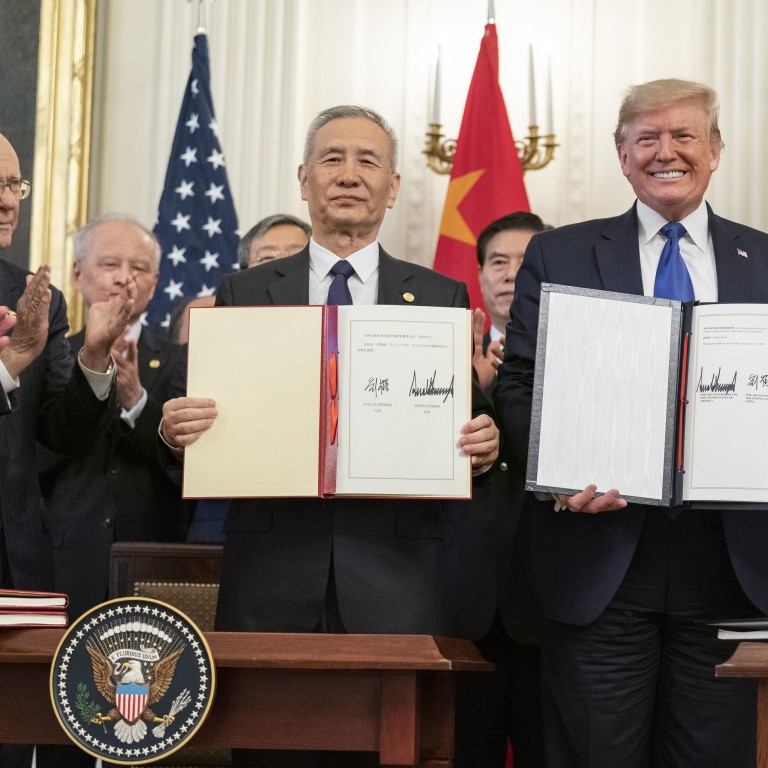
US-China trade war: Beijing will honour phase one deal by opening financial sector wider, its central bank chief says
- Vice-Premier Liu He is expected to hold a video conference this week with US Trade Representative Robert Lighthizer and Treasury Secretary Steven Mnuchin to discuss the trade deal
- Central bank governor Yi Gang says Wall Street’s trading houses will be allowed to have exclusively owned brokerage operations in China
China will continue to implement its part of the phase one trade deal with the United States and will fulfil financial opening-up pledges despite worsening bilateral relations between the world’s two largest economies, China’s central bank governor said in an interview with the official Xinhua news agency.
“No matter how the international situation changes, the most important thing is to get our own things done and to firmly deepen financial reform and opening-up,” Yi Gang, the head of the People’s Bank of China, was quoted by Xinhua as saying on Sunday.
“First of all, we will continue to implement the phase one trade deal with the US.”
Beijing’s intention to continue honouring the trade deal, which requires China to significantly increase purchases of US goods and services and to enhance intellectual property rights protection, reflects the Chinese government’s efforts to keep US-China ties from sliding further into direct confrontation.
At the same time, China’s purchases of US farm and energy products are far behind schedule, partly due to the coronavirus, making it hard for US President Donald Trump to brag about the deal as one of his major achievements. US Democratic presidential candidate Joe Biden said last week that Trump’s trade deal with China was “failing” badly, Reuters reported.
Meanwhile, China’s much-delayed financial opening measures, some of which were promised two decades ago as conditions for China’s entry into the World Trade Organisation in 2001, are losing their appeal to potential investors.
For instance, Yi said China is encouraging foreign investors to put money into the country’s onshore securities via the qualified foreign institutional investor programme – a scheme that started in the early 2000s as a way for Beijing to vet potential foreign portfolio investments – after having recently done away with financial limitations on the programme. But the value of the channel has diminished significantly, as there are now easier ways to access Chinese stock and bond markets, such as the Stock Connect and Bond Connect programmes that allow foreign investors to buy Chinese mainland securities via Hong Kong.
Yi did not mention the growing risks of financial decoupling between China and the US.
The central bank warned in its second-quarter monetary policy report published last week that China faces a sharp increase in external uncertainties and instability.
Yi was quoted by Xinhua as saying that China will continue to advance the use of the yuan overseas.

